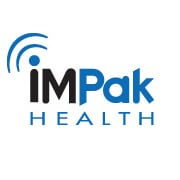Healthcare technology firm Cypak and New Jersey’s Meridian Health have come together to unveil a tool to monitor potential sleep disorders using discreet NFC-based technology — with more capabilities to come.

iMPak Health, a joint venture between Sweden’s Cypak and Meridian Health in the US, has launched a product aimed at helping patients monitor potential sleep disorders using NFC technology.
SleepTrak, introduced at the Wima conference in Monaco last month, was developed to provide consumers with an easy-to-use device that can tell them more about how well they sleep, track symptoms associated with inefficient sleep, and provide resources and suggestions for better sleep habits.
SleepTrak includes a credit-card sized device which can be attached to an individual’s arm and which measures, for example, how active they are during sleep. The ‘card’ is then read with an NFC-enabled Nokia C7 phone in the morning, at which point the information gathered overnight is uploaded to the phone and the card reset for the following night. An application running on the phone then analyses and presents the information graphically to the user or a doctor.
Speaking to NFC World before the launch, iMPak Health’s Sandra Elliott said the technology had been developed with the patient, and healthcare professionals, in mind.
“We were looking at technologies that will allow us to take care of people in a more cost-effective way. We began to realise that any solution has to be low-cost, easy to use and allows people to feel comfortable to using it.
“The more we looked into it, it was easier for us to see if we could tie solutions around mobile phones. We had to go where consumers already were; phones were something they used in their daily lives. ‘Touch and post’ technology makes so much sense to the consumer as it’s easy for them they to understand it.”
http://www.youtube-nocookie.com/v/5r9JlM7wAkU?fs=1&hl=en_GB&rel=0
Ms Elliott added that the aim was to develop the technology to work with other conditions such as diabetes, and in future bring it to the point where it can be used to provide basic health monitoring in the developing world.
“We are developing a weight management kit and diabetes card,” she explained. “Our weight management programme involves a combination of a step counting card and a food journal, allowing consumers to take control of their own health and providing them with relevant information.
“The diabetes card is for screening only but it will enable an individual who, for example, may have a family history of diabetes to get the card, test a blood sample and process the blood. The information is stored on a card to upload to the phone.”
Clinicians in the US are said to be generally positive about the technology because it gets patients more engaged with their health while not being seen as a replacement for visiting the doctor.
Next: Visit the NFCW Expo to find new suppliers and solutions